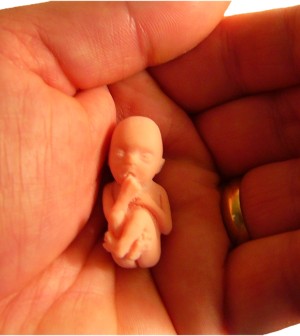- Recognizing the Signs of Hypothyroidism
- 10 Strategies to Overcome Insomnia
- Could Artificial Sweeteners Be Aging the Brain Faster?
- Techniques for Soothing Your Nervous System
- Does the Water in Your House Smell Funny? Here’s Why
- Can a Daily Dose of Apple Cider Vinegar Actually Aid Weight Loss?
- 6 Health Beverages That Can Actually Spike Your Blood Sugar
- Treatment Options for Social Anxiety Disorder
- Understanding the Connection Between Anxiety and Depression
- How Daily Prunes Can Influence Cholesterol and Inflammation
Obese Kids Might Have Higher Levels of Stress Hormone


Obese children have elevated levels of a key stress hormone, according to a new study.
Researchers measured levels of cortisol — considered an indicator of stress — in hair samples from 20 obese and 20 normal-weight children, aged 8 to 12. Each group included 15 girls and five boys.
The body produces cortisol when a person experiences stress, and frequent stress can cause cortisol and other stress hormones to accumulate in the blood. Over time, this can lead to serious health problems, according to the authors of the study, which was published online Dec. 18 in the Journal of Clinical Endocrinology & Metabolism.
“We were surprised to find obese children as young as age 8 already had elevated cortisol levels,” study author Dr. Erica van den Akker, of Erasmus MC-Sophia Children’s Hospital in Rotterdam, Netherlands, said in a journal news release.
The obese children had an average cortisol level of 25 pg/mg in their scalp hair, compared with 17 pg/mg for normal-weight children, the researchers said. The levels found in hair reflect cortisol exposure over about one month.
More research is needed to determine the reasons for the study’s findings.
“We do not know whether obese children actually experience more psychological stress or if their bodies handle stress hormones differently,” van den Akker said. “Answering these key questions will improve our understanding of childhood obesity and may change the way we treat it.”
More information
The American Academy of Pediatrics tells parents how to identify a child under stress.
Source: HealthDay
Copyright © 2026 HealthDay. All rights reserved.










